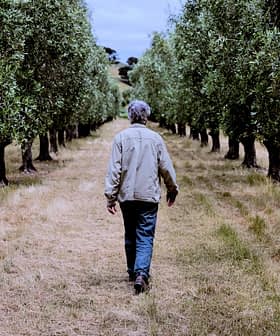Students in Morocco can enroll in an olive oil-specific Master’s degree for the first time.
The National School for Agriculture in Meknès, one of the country’s most productive olive-growing regions, will accept students into the virgin olive oil quality and safety Master’s degree (MarVOOlea) at the beginning of the 2023/24 academic year.
Bearing in mind the great development manifested by the Moroccan olive oil sector since 2010, there is a real need to accompany this development through the training of a new generation of (olive oil professionals).
“This master is the main result of the FosaMed project ‘Enhancing Food Safety in the Mediterranean,’ whose main objective is the establishment of a master on food safety in Morocco,” Bajoub Adil, an agronomic engineer and coordinator of the degree program, told Olive Oil Times.
“The National School of Agriculture, with strong experience in the field of olive growing, has chosen to specialize the master in olive products safety,” he added. “This choice is guided by a study that our team has conducted [with many industry stakeholders] on the assessment of training needs in this area.”
See Also:Olive Center Expands Olive Oil Education to Adolescents and ChildrenThe goal of the Master’s degree program is to professionalize the Moroccan olive growing and oil production sectors. The project will also contribute to Morocco’s Green Generation 2030 strategy, which is meant to modernize the agri-food sector sustainably.
“The Master’s teaching units have been established considering the national olive growing and olive oil-producing skills needs, including scientific research and the training of qualified professionals capable of strengthening the agri-food sector,” Adil said.
The team planning MarVOOlea consulted local mill managers, olive farmers, university students and other stakeholders. Professionals in the sector will be invited to give guest lectures, and some of the company’s most prominent producers will also offer semester-long internships to students.
According to Adil, the two-year degree covers the most up-to-date skills and knowledge of:
- Olive growing techniques and grove management;
- The relationship between olives and climate change;
- Olive harvesting and mechanization;
- Olive oil technology;
- Table olive production;
- Quality and safety analytics;
- Biorefinery of olive by-products;
- Circular economy paths in the olive sector.
“The teaching of fundamental concepts is accompanied by the learning of methodological tools, orchards, olive oil mills and laboratory training, the presentation of current research issues and applications in the chosen specialties,” Adil said.
See Also:Olive Oil Sommelier Certificate Program LondonAccording to International Olive Council data, Morocco is expected to produce 156,000 tons in the 2022/23 crop year, slightly below the rolling five-year average of 172,200 tons.
Despite this year’s production decline, olive oil yields in Morocco have steadily risen over the past three decades. The olive oil sector is now one of the largest agri-food industries in Morocco, contributing 5 percent of the country’s agricultural GDP and directly employing more than 100,000 people.
As a result of the sector’s rising economic importance to rural areas and the country’s trade balance, Adil believes the master’s degree program is necessary to improve the olive oil and table olive sectors in terms of quality and profitability.
“Bearing in mind the great development manifested by the Moroccan olive oil sector since 2010 (extension of the olive growing area, establishment of olive oil production cooperatives and new and modern olive mills), there is a real need to accompany this development through the training of a new generation of managers of olive mills and farms, managers operating in the control bodies of quality and safety of Moroccan olive oil,” Adil said.
He added that new free trade agreements signed with the United States and European Union had strict quality requirements.
“Therefore, the Master’s degree program has a role to play in this area through the training of highly qualified future olive oil professionals,” Adil said.









